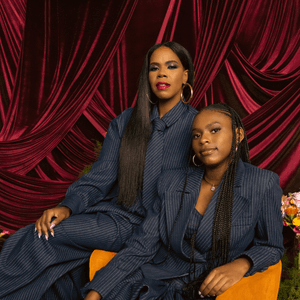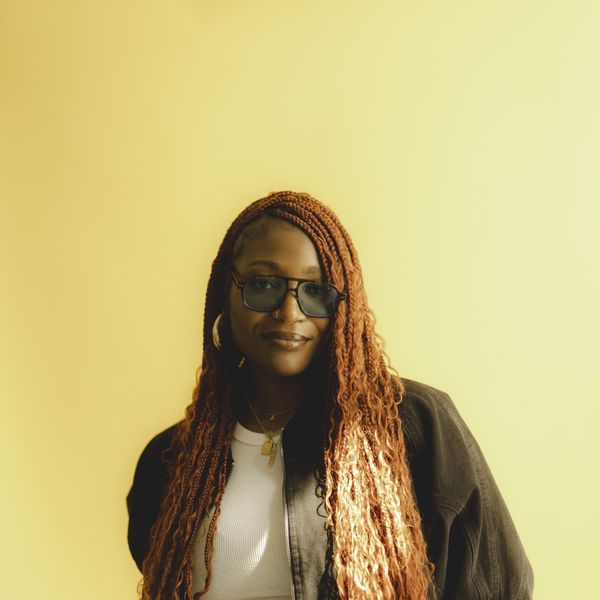There's that age-old saying that applies to major decisions in your life: "When you know, you know." And when it comes to my sanity, happiness, or financial future, it's a saying that has rung true time and time again. Finding the right time to quit a job is never easy, whether you hate the job, love it but have to move on, or feel indifferent about it.
In my case, I knew that quitting a job after just a few weeks would be a far less painful experience than sticking it out. Continuing in the role, for me, would have led to the digging up of old career wounds and a horrible reversion in the progress I'd made both professionally and personally.
In just a short time at the job, I felt like I was in a nightmare remake of a Christmas classic, except this film would be called, Ghosts of Toxic Workplace Past. It was like allowing my ex to take me on a 10-day baecation cruise. Immediately, no.
And as much as I'm all for giving something (or someone) second and third chances (as I often did in the case of my ex), I'm a huge fan of Black women taking up space by not taking crap in order to prove our worthiness, tenacity, or stamina. As "strong" women, we're supposed to accept that "work 10 times harder" and big-girl-panties mission, even at a job that makes us miserable. Not only are we to survive, but we must overachieve and thrive. As my favorite auntie Betty Wright once said: No pain, no gain, right?
Well, after too many years of that, I now advocate for nipping things in the bud early, especially in matters of the heart and profession and especially when it's to your detriment.
While I don't recommend this as a smart option for every professional, it's a good idea to think through why you'd want to quit a job and when is best to do it. Here are a few red flags that led me to push the resignation button so soon:

Delmaine Donson/Getty Images
1. From day one, the job description did not match my understanding of the duties.
Keywords: my understanding. I often overthink almost everything in my life, so I definitely asked quite a few questions during the multiple rounds of interviews for the job. I also re-read the description and asked questions via email so that I could get a few things in writing before the actual offer was made. I thought I knew exactly what I was getting into. As someone with almost 20 years of experience in my field, I figured, hey, a few minor things might be adjusted, but the overall expectations of the job, the people I'll be leading, and the nature of the work, won't deviate much---at least not in the first six months.
Wrong.
Immediately upon starting the job, I noticed that not only was I suddenly given an extra team to lead, but the switcheroo was done very casually as if it were normal. I was taken aback and expressed that I was not aware that I'd be taking on managing more people than what was told to me during the interview process. The response: "Oh, it's just..."
Yeah, anytime someone of authority at work uses the word "just," it's a clear dismissal of what it truly takes to do your job, and from my experience, is a key sign that many of your valid concerns related to your job will be dismissed, whether passively or aggressively. And the dismissive responses to your concerns won't end. You'll end up a doormat and out of fear and obligation, take on more work than you have the mental capacity to do well.
You'll grow sick, physically, due to burnout, end up using the few sick days you have simply for a break, have none for when you actually do get sick, then be labeled "difficult" for finally setting boundaries one day in a frenzied act of tears and desperation. (Yep, this happened to me as well, which is why, again, this job clearly wasn't for me. Too many triggers. Too many oh-hell-naw signs to run. It was like being on a date with an ex.)

Luis Alvarez/Getty Images
2. For me, the actual (well... "updated") job requirements did not match the pay.
Again, keywords here: for me, as in, in my professional opinion based on the job's requirements and market value for the role. Additional team members were added, along with the time, energy, and talent it takes to manage them, with no raise in pay or update on my benefits package. None.
Do I need to say more? I'd worked at major companies and for major brands---proven myself time and time again--for almost two decades, with the career receipts and education to prove it, only to be flagrantly asked to do the extra work for free. And as a Black woman, I found it even more insulting.
3. My "manager" had totally different work experience and credentials that I felt were unrelated to mine.
While this particular person was amazingly welcoming and great at what she did, her talents and skills were for a totally different aspect of the business than mine, yet she was serving as my supervisor. I also learned that she'd floated around to various "management" positions in different departments. She'd been taking on multiple jobs and "helping out" in order to onboard me.
In my experience, I've known that professionals who do this are often either looking to be promoted elsewhere or are the go-to person who takes on tasks nobody else wants to do. I also knew that this was a recipe for disaster, especially if I would be looking for leadership and/or mentorship support in my role.
It seemed to me that this person was simply biding their time until a better opportunity came along or that the person was doing a favor for someone in order to advance in some other way at the company. Also, if the person judging me on my performance does not have the educational or professional background and/or credentials I have, how can they offer a fair and reasonable review of my work, especially in my role as a manager? This, too, just seemed too problematic.

Srdjanns74/Getty Images
4. I was given the responsibility to lead a team that was already emotionally battered from previous issues at the company.
During my first few weeks, I knew it would be a smart move to have one-on-ones with the teams I was meant to lead. The company had gone through a series of lay-offs before they'd hired me, and my experience taught me that it's good to get a gauge of where the remaining survivors' heads were at so that I could be of service and approach managing them in a strategic way.
What I found from the one-on-one meetings were signs of disenchantment, disinterest in the questions I was asking, or lackluster responses when talking about what they love about working for the company. One person even seemed to be playing a game on his phone while in the meeting. There were a select few who were enthusiastic, welcoming, and forthcoming, but they seemed to have differing versions of their own roles and responsibilities. And the team members who were positive were newer hires, just like me.
The majority of the team seemed like they didn't even want to be there or as if they'd rather have been talking to someone else, maybe a previous manager who was laid off. As much as I love a challenge, at the time, I just couldn't stomach the idea of having to fight through and win the team members over. I just didn't have it in me. I'd be tasked with not only meeting certain company deliverables attached to my role but also appeasing the hardened hearts of disgruntled workers who'd been working at the company for years.
No, thank you.

The Good Brigade/Getty Images
5. I found that I'd constantly have to re-affirm my credentials and skills.
As much as this is often seen as a "norm" at companies, I'd had my fair share and was tired of it. I went solo as a self-employed consultant for this very reason. I would no longer tolerate work environments where I didn't feel affirmed by those who managed me or who had the power to back me up when I'd need to assert authority. I also would not waste my time re-affirming what was already talked about during the interview process and was the very reason I was hired. This happens to Black women in leadership all the time and it not only takes a toll on your mental health, but it doesn't allow you room to grow in leadership.
I've had jobs where I had to test to even make it to the final round of candidates, where I've had to interview with multiple members of small staffs, and where I've had to constantly play along with what's called "micro" aggressions that were very much not micro or small at all.
And yes, I learned all of this after only a couple of weeks in that position.
Years later, I can say that quitting so soon was the best decision of my life. It was scary at the time because I wasn't sure how I was going to supplement my income, but God always comes through for your girl. And it helps that I'm not new to self-employment and the savvy of finding solutions to unemployment.
I went on to work with more freelance clients and made more money than I would have if I stayed at that job. I still have a flexible schedule, I can travel when and where I want, and I'm proud of the work I do, serving women professionals and entrepreneurs as both a coach and a seasoned journalist and editor. The companies I currently work with value my input and my experience and make me feel like a loved member of their fam. While I still face challenges, they're the type that allows me to grow in leadership and learn more about myself and the world.
So, sis, here's your confirmation: Don't wait for things to get worse. Send that resignation email (of course, after looking at your contract or offer letter) today. Stop second-guessing that gut feeling and go for yours. The time is now.
Let’s make things inbox official! Sign up for the xoNecole newsletter for daily love, wellness, career, and exclusive content delivered straight to your inbox.
Featured image by Three Spots/Getty Images
- I Quit My Job To Be "FUNemployed" For A Year - xoNecole ... ›
- These 3 Women Boldly Quit Their Jobs & Changed Careers ... ›
- I Quit My Job To Travel On A Year Of Savings - xoNecole: Women's ... ›
- Quit Your Job The Right Way - xoNecole: Women's Interest, Love ... ›
- You Quit Your Job, Now What? From Corporate To Entrepreneur - xoNecole: Women's Interest, Love, Wellness, Beauty ›
- Top Entry-Level Remote Jobs That Require No Experience - xoNecole ›
- Overachieving In Black Women, How To Find Your Worth - xoNecole ›















